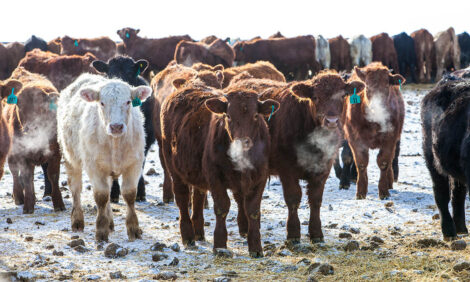



US, Korean Presidents Sign Free Trade Pact; Groups Welcome KORUS
US - The signing of a renegotiated free-trade agreement between the US and the Republic of Korea is spurring optimism that export markets for American farm goods won't shut down and may even expand.US President Donald Trump and his ROK counterpart Moon Jae-in signed the agreement Monday on the sidelines of the United Nations General Assembly in New York, the first major trade deal the US president has forged amid rising trade tensions.
It is welcome news for US farmers worried that the closing of export markets, especially China, will heighten the impact of low prices due to expanding supplies of corn, soybeans, beef, pork and chicken.
The ROK is the sixth-largest export market for US agriculture, buying $6.9 billion worth of farm goods last year, according to the American Farm Bureau Federation. The free-trade agreement with the two countries has helped make South Korea the second-largest importer of US beef after Japan by sales. US pork exports have also risen.
"Renewal of our trade deal with South Korea is much needed good news and help for our farmers and ranchers as the agricultural economy struggles," Zippy Duvall, the federation's president, said in a statement Monday. "Securing export markets for our products is critical, and we encourage the administration to continue to push for conclusion of other trade agreements."
Those include pacts with China, Mexico and Canada and looking to rejoin the Trans-
Pacific Partnership, an agreement President Trump pulled the US out of as soon as he took office. The so-called TPP agreement would boost US agricultural exports by $4 billion per year, according to the federation.
"I am optimistic that the dominoes will continue to fall: KORUS, then a new NAFTA, and new agreements with the European Union, Japan, and, most notably, China," Agriculture Secretary Sonny Perdue said in a statement on Monday.
The ceremony in New York on Monday represented key progress for proponents of free trade between the partners, as President Trump last year reportedly planned to withdraw from the pact, which came into effect in 2012. The US President, during his election campaign, called the original agreement a "jobs killer" and complained its terms had contributed to America's growing trade deficit.
As part of his push to re-balance global trade in America's favor, the president is also negotiating changes to the North American Free Trade Agreement and is pressuring China to lower its barriers to American products. NAFTA negotiations are ongoing, while there are few signs of progress with Beijing.
In response to the agreement, US Meat Export Federation (USMEF) President and CEO Dan Halstrom issued a statement saying, "Signing of the revised KORUS agreement is reassuring news for the US beef and pork industries.
"The market access terms secured in the original KORUS not only helped increase US red meat’s market share in South Korea, but also bolstered consumption by making our beef and pork products more affordable and accessible to Korean consumers.
"The United States is the largest supplier of beef to Korea and trails only the European Union as the second-largest pork supplier. US red meat exports to Korea set a record last year of $1.7 billion, up 19 per cent year-over-year and up 69 per cent from 2012, when KORUS entered into force.
"This trend continues in 2018, with both US beef and pork export value increasing more than 50 per cent compared to a year ago. Korea is now the second-largest value market for US beef (after Japan) and fourth-largest for US pork (after Japan, Mexico and China/Hong Kong).
"Under KORUS, most US pork products now enter Korea duty-free. The duty rate on US beef has been reduced from 40 per cent to 21.3 per cent and will continue to decline each year until it is eliminated by 2026.
"All major red meat competitors also now have free trade agreements with Korea, but the US has benefited from KORUS being implemented earlier than most of these FTAs, providing the US with a head start on tariff elimination.
"USMEF thanks our US trade officials for recognizing the importance of the favorable terms included in KORUS, and maintaining them in the revised agreement."
National Cattlemen's Beef Association (NCBA) President Kevin Kester said: "KORUS is a prime example of how US producers benefit from trade agreements that reduce tariffs and implement science-based standards.
"Less than a decade ago, US beef exports to South Korea were severely limited by a 40 per cent tariff and a host of non-tariff trade barriers. KORUS tore down those barriers, helping turn South Korea into a leading destination for US beef.
"In fact, exports to South Korea accounted for over $1 billion annually over the last two years. We applaud President Trump for his leadership in improving KORUS for other sectors and we know that a modernized KORUS agreement will allow US producers to continue focusing on what we do best: Providing safe, high-quality beef for Korean families to enjoy."
TheCattleSite News Desk


